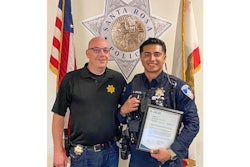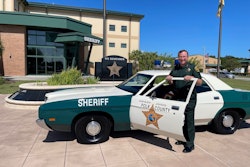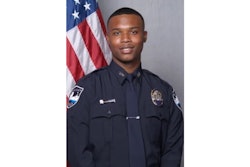 Photo: getty/fizkes
Photo: getty/fizkes
As I approach my quarter-century mark in the profession, I’ve by now been exposed to nearly every personality in law enforcement. I also have friends and colleagues in a wide range of departments in all four time zones of the Lower 48. The close pals that I have chosen for my inner circle of confidence are some of the most effective, impactful leaders that I know, and that is on purpose. Everyone by now realizes that we become like those we surround ourselves with, therefore I choose my circle with extreme care.
Similarly, I have been involved in dozens of selection processes through the years, from new recruit candidate hiring and selection, to promotional board assessments, to special team selection processes, and even for non-sworn auxiliary personnel hiring.
I’ve sat enraptured on hiring panels, keenly anticipating the arrival of a candidate who had submitted a world-class resume, to walk in and blow us all away with the knowledge, skills, and communication acuity that befits such a distinguished work record. Time after time, I have often concluded the same interviews deflated, underwhelmed, and frustrated, as the candidate seated before us in no way resembled his lofty resume. Similarly, I have witnessed job and promotional candidates with very thin and unimpressive resumes crush their interviews, and going forward immediately morph into the most capable leaders. Too often in modern policing we give far too much weight to resumes when selecting new officers or choosing and promoting our leaders.´
Unfortunately, the online dynamic has created entire virtual warehouses of professional headshots, resumes, and career experience bullet points by which aspiring leaders can simply compare themselves to others in their fields and adjust their profiles accordingly. LinkedIn, Xing, Meetup, and other websites allow law enforcement professionals to carefully craft their image, which is often quite distinct from the reality of who they are as three-dimensional leaders. While the modern-day resume in all its versions is certainly one aspect of a police leader, it is definitely incomplete.
Regrettably, I have watched a police commander and alleged leader selfishly manipulate the lives and careers of so many under his authority, feeding a tyrannical appetite for power and influence in his striving toward chiefdom. The toxic tidal wave from this man’s actions that flooded through his department can truly not be overstated. On paper, his resume was the thing of legends, and any passive reader would assume this failed leader to be without peer in his stellar professional police capacity.
I have witnessed an assistant chief of a large urban police department with a professional resume and accompanying LinkedIn presence that would rival that of any Fortune 500 CEO fail miserably when confronted with the real world challenges of leading people. As one of this chief’s most effective, valorous subordinate patrol commanders was diagnosed with cancer, withered away over several months, and eventually passed, this ineffective leader fully and without remedy abdicated the leadership role in caring for their people. Not one visit, call, or even text message was sent to offer support and encouragement. The resume was truly impressive, yet a leader it did not make.”
I’ve watched scores of new police recruits flow through our hiring processes, most armed with overflowing lists of accomplishments on their imposing resumes and with polished online self-images. Background investigators and hiring boards often swoon when digging into these candidates, as the shiny resume necessarily leads us to believe we have found that singular true talent, the proverbial needle in the haystack. However, oftentimes the applicant arrives for an interview to proceed in the hiring phase, and falls flat as their online presence bears no resemblance to their true station.
Impossible to count are the numbers of police executives who I have watched cater their career tracks in order to compile a hearty and imposing professional resume. Predictably, when the vast majority of these managers are faced with a leadership crisis requiring a challenging or unpopular decision, they often cowardly delegate the task to a subordinate and abdicate their responsibility. Unfortunately for them, and for their agency, the monumental paper resume was no help when they were faced with such an impasse.´
Unfortunately, all of these tales are true. However, equally true are the refreshing tales of humble, devoted officers, agents, deputies, and troopers, who simply show up without the fanfare of high-quality resumes and LinkedIn profiles, and lead with true and honorable impact. These are the law enforcement professionals who are the best of us. They are the ones who consider their own time better spent training, leading, learning, and refining their craft, as opposed to copying, pasting, and editing a paper resume.
For those who desire to lead effectively as you grow into the leader you aspire to be, spend your time, energy, and intentions wisely. Particularly as you begin your climb through the ranks, you will face the temptation to become a solid cop on paper, as your peers compete to write, edit, and refine the most impeccable resume.
Don’t fall prey to the lie of the resume. Study, observe, and befriend the true leaders around you. Listen, learn, help, and lead, in that order. Surround yourself with effective, humble leaders who are more likely to be found in the weight room or gun range with their squad, than attending yet another executive conference to add to the resume.
Do not seek applause and praise, but keep trudging the lonely, well-worn path of the warrior poets who have gone before you. The resume will often lie, but your commitment and dedication as you care for your true character will never be wasted. Our profession, and our nation, depends on your choice.
Lt. Kory Flowers is a 22-year veteran with the Greensboro (NC) Police Department. Flowers trains law enforcement officers nationwide on various subversive criminal groups, leadership, and tactical communication. He is a frequent contributor to police.















